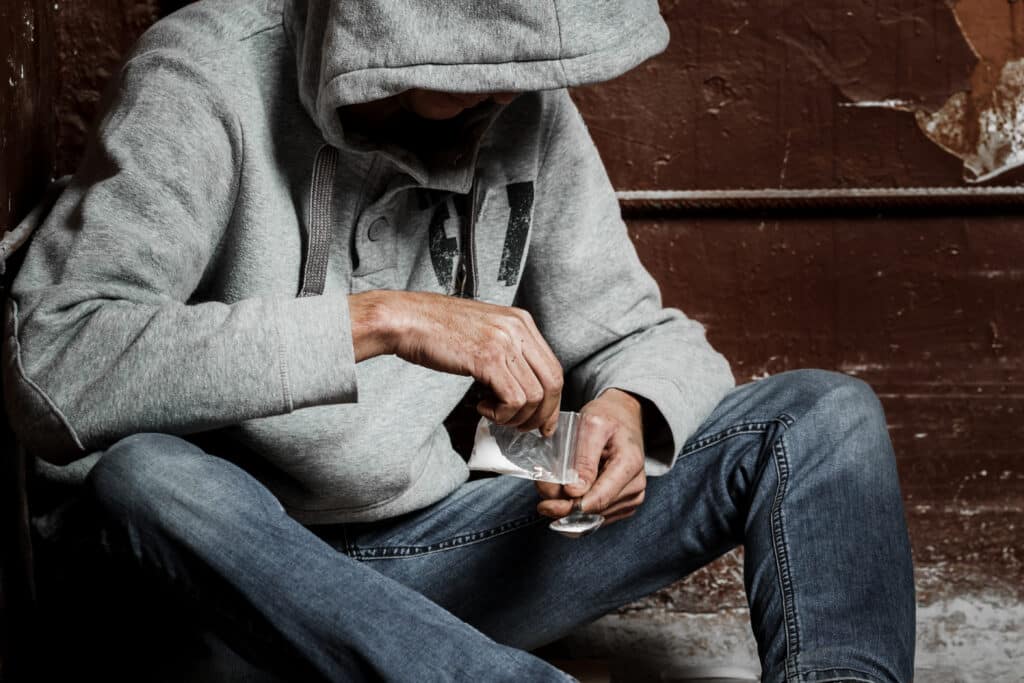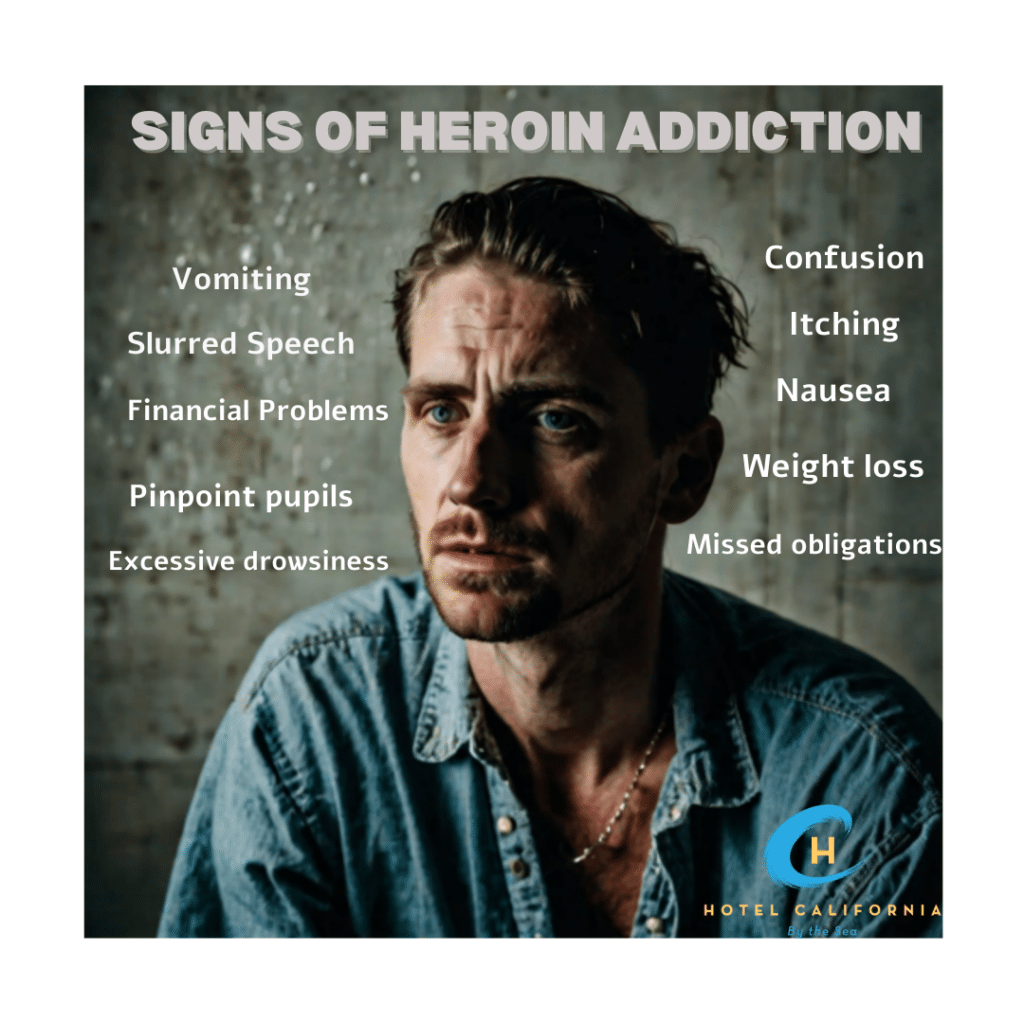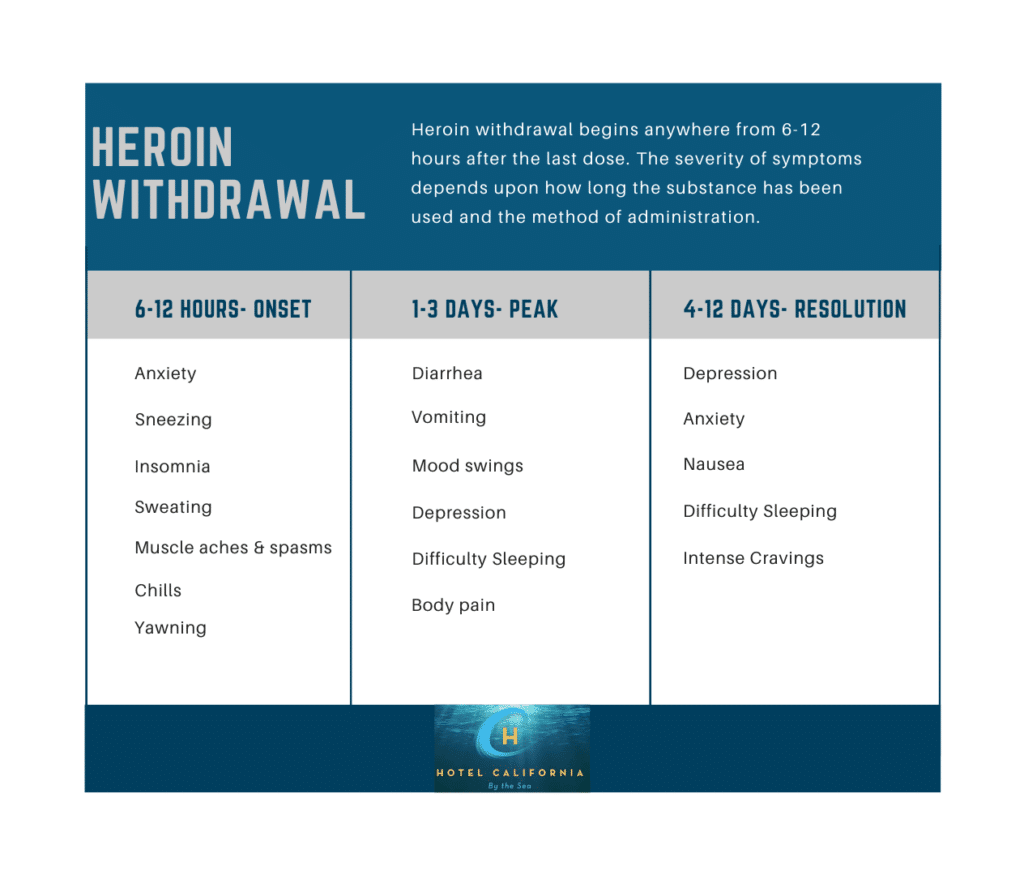What is the timeline for Heroin Withdrawal and how do you treat it?
Heroin is an illegal and highly addictive semi-synthetic opioid. It is derived from morphine, which is a naturally occurring substance extracted from the seeds of the poppy plant. In a 2021 National Survey on Drug Use and Health, an estimated 1 million people ages 12 and over in the United States reported having a heroin addiction in the past year. The schedule I controlled substance impacts the brain’s central nervous system.

Heroin tolerance, dependence and addiction can develop quickly. Heroin interacts with the opioid receptors in the brain in charge of controlling pain relief and reward functions. When entering the brain, heroin is turned into morphine and binds to the opioid receptors. This allows the continuous flood of “feel good” hormones into the brain, which reduces anxiety and induces a sense of intense relaxation. Heroin is a powerful pain reliever with numbing effects on the nerve cells.
How does Heroin Addiction start?
Users who have become addicted to heroin often chase the euphoric feelings and continue to abuse the drug due to their psychological dependence. Unlike other prescription opioids with similar chemical structures, heroin leaves the system faster leading to quicker symptoms of withdrawal.
Heroin is an extremely addictive substance no matter how it is administered. It is typically injected intravenously, but it can also be smoked. Through intravenous injections, users face a higher risk of infection for diseases such as HIV, Hepatitis C and Hepatitis B. There is also a high risk of contracting bacterial infections of the skin, blood, and heart.
Heroin is often used alongside other mind-altering substances such as alcohol, which can lead to a higher risk of overdose. Because of its highly addictive nature, heroin recovery can be very difficult. Many find themselves chronically relapsing from heroin use. More than just a physical dependence, heroin has altered brain chemistry in which the body begins to crave the same sensations leading to uncontrollable drug-seeking behaviors.

Heroin Withdrawal
Painful withdrawal symptoms lead to continued addiction as the user tries to avoid any uncomfortable side effects of detoxing from the substance. In fact, heroin withdrawal can be more intense and dangerous than withdrawal from other prescription opioid medications.
The changes in the brain chemistry occur when the brain develops a physical dependence on heroin and is the primary cause of experiencing withdrawal symptoms. When heroin is no longer in the system, the brain cells have to readjust how they function without the drug. When adjusted cells suddenly need to function in the absence of heroin, the body sees this as pain, causing the system to go into chaos and the explosion of various withdrawal symptoms such as anxiety, depression and insomnia.
Common symptoms of Heroin Withdrawal
- Flu-like symptoms – watery eyes and runny nose
- GI issues – diarrhea, vomiting and abdominal pain. Because the digestive system has been altered by heroin, the water and acid in the stomach readjust and rebalance in order to compensate for the constipating opioid effects.
- Insomnia and fatigue
- Agitation, restlessness and difficulty concentrating
- Sweating, cold flashes and tremors
- Anxiety and depression
- Muscle aches, joint pain and impaired leg movements
- High blood pressure and rapid heart rate
- Shortness of breath
- Intense drug cravings
- Post Acute Withdrawal Symptoms (PAWS) – PAWS can last anywhere from 18-24 months after initial drug detox and can include symptoms of poor sleep, poor concentration, increased anxiety and depression, panic attack, fatigue, hypersensitivity and mood swings.

How long does Heroin Withdrawal last?
Heroin users usually begin to experience withdrawal symptoms between 6-12 hours after the last dose was taken. The duration of withdrawal also depends on many different factors. The length of time heroin was used, how much heroin was taken at each time, how frequently heroin was taken, the method in which heroin was taken, and the presence of any underlying co-occurring mental health conditions all affect heroin withdrawal. On average, heroin withdrawal lasts anywhere from 5-10 days.
- Day 1-2: During this phase, withdrawal symptoms can begin as soon as 6 hours after the initial dose. Painful symptoms can develop on the first day and intensify over the next 24-48 hours, which include anxiety, panic attacks, insomnia, muscle spasms and abdominal pain.
- Day 3-5: During this period, heroin withdrawal is at its peak with symptoms of cramping, sweating, shivers, nausea, diarrhea and vomiting.
- Day 6-7: This period is the end of acute withdrawal where users can experience lingering muscle aches and nausea. Intense withdrawal symptoms will begin to taper off slowly.
- PAWS – In some cases, post-acute withdrawal syndrome may occur inconsistently for months after most symptoms wear off. This is due to the neurological changes and damage in the brain from heroin use. During this period, users can also begin to experience intense drug cravings for heroin.
Check Your Insurance Coverage for FREE
Find out if your insurance covers addiction treatment in minutes. We accept most insurance!
Medications and Treatments used in Heroin Detox
Detoxing from heroin is not an easy feat. During the detox phase where users can experience painful withdrawal symptoms, some medication treatments are utilized to help ease the discomfort.
- Methadone. Methadone is a traditional and popular medication used in heroin detox. It is a slow-acting, low-strength opiate often used to help patients taper off heroin and prevent intense withdrawal symptoms.
- Buprenorphine. Buprenorphine is also commonly prescribed during heroin withdrawal. It is a partial opioid agonist that produces opioid effects at a much lower intensity and helps to reduce cravings and physical withdrawal symptoms.
- Naltrexone. Naltrexone blocks the receptors in the brain that react to opioids and the effects of pleasure and euphoria. It works by suppressing opioid cravings and is often used as part of long-term medication management throughout the duration of heroin addiction treatment.
A new type of treatment addiction specialists have begun experimenting with is called rapid detox for heroin withdrawal. This treatment consists of using anesthesia-assisted medical treatment that works to clear heroin from the body within a few days. This is done with the help of naloxone or another type of opioid antagonist medication. This detox treatment method only works to treat symptoms of heroin addiction. It does not treat the root causes of heroin addiction, which should be treated through intense cognitive therapies.
Another new and innovative heroin detox treatment is called accelerated neuro regulation (ANR). It works by returning the brain to a pre-addiction state through modification of the endorphin receptor system. It addresses the biological cause of addiction to help eliminate cravings and intense withdrawal symptoms. ANR is still a very new type of treatment and has not been widely adopted.
Reach out to Hotel California by the Sea
We specialize in treating addiction and other co-occurring disorders, such as PTSD. Our Admissions specialists are available to walk you through the best options for treating your addiction.
Heroin Addiction Treatment
Heroin is a difficult addiction to recover from and it is best to seek out professional treatment through programs such as Hotel California by the Sea. Our heroin addiction treatment program offers all levels of care and addresses the physical and psychological concerns of the mental health disease.
Medical detox, residential inpatient programs and PHP and IOP programs cater to clients in different levels of recovery. We specialize in treating co-occurring mental health disorders and offer unique treatment methods such as CBT, EMDR therapy and family therapy.
Hotel California by the Sea understands that there is no such thing as a one-size-fits-all when it comes to substance addiction recovery. Each client will have customized treatment plans to address specific issues associated with their heroin addiction and co-occurring mental health disorder. Heroin is not an easy addiction to overcome. We will provide the tools, resources and support clients need to start a new life in sobriety and recovery.
References:
https://www.gratitudelodge.com/heroin-addiction/withdrawal-timeline/
https://www.bluecrestrc.com/10-symptoms-of-heroin-withdrawal/
https://anrclinic.com/heroin-withdrawal-detox/
https://nida.nih.gov/publications/research-reports/heroin/overview
https://www.addictioncenter.com/drugs/heroin/withdrawal-detox/


